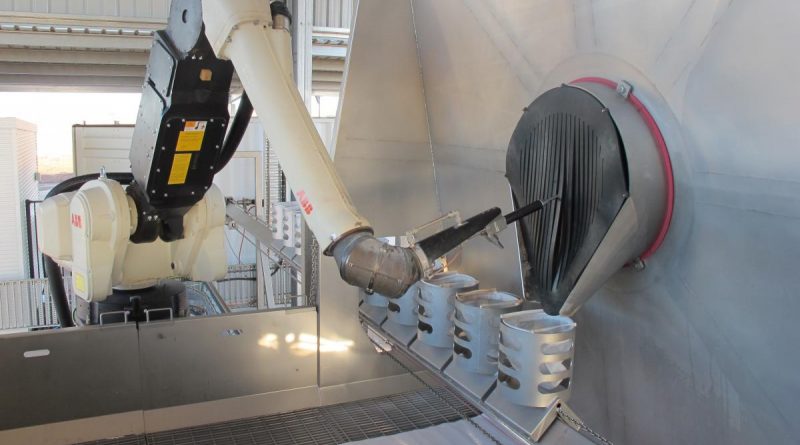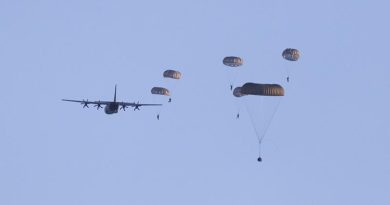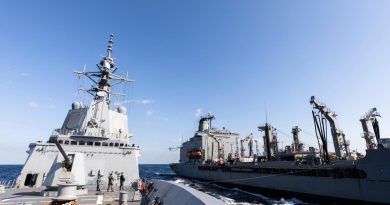Technicians win safety award

Defence technicians who ensure military equipment is safe by removing explosive material have been recognised at the 2021 Comcare National Work Health and Safety Awards.
CAPTION: The robotic arm of the Semi-automated Explosive Ordnance Inerting Capability and the filtered catch-buckets that collect the extracted material.
The prevention award was presented in recognition of their efforts to enhance the safety of personnel during the processing of ordnance, such as aircraft bombs and artillery shells.
The establishment of the Semi-automated Explosive Ordnance Inerting Capability introduced a high degree of automation for the task.
Hazardous situations for humans have been largely removed, and what was previously a physically demanding manual task is now carried out by a robot.
Shane Dew, who leads the Advanced Ordnance Technologies team at Defence, said the recognition meant a great deal to everybody involved.
“Not only because of the hard work that’s been undertaken by each individual team member that’s contributed to the development of this but also because of the close collaboration with our industry partners,” Mr Dew said.
“The award means a lot because of that successful collaboration, the successful design and development of the capability, but then also being recognised for enhancing safety to support the whole of Defence.”
The design of the new facility, which is located at the Woomera Test Range in South Australia, was fine-tuned in a 3D environment. The site was first built in the virtual world, with all of the moving parts animated, so that improvements could be made before construction of the physical facility started.
This innovative capability goes beyond merely enabling remote handling of explosive material by human operators.
“We’ve integrated a level of intelligence into the system where the computer recommends the most efficient way of extracting the explosive material, rather than using the robot to carry out a repetitive process,” Mr Dew said.
“For every new piece of ordnance that goes up there, the computer will actually design a new way of doing business.”
The ordnance-processing system is capable of operating semi-autonomously. Working within pre-set parameters, the computer will determine how best to complete a given task. The human operator will review the plan, make changes if necessary and then give the system the go-ahead.
Environmental management has also been enhanced, and the ordnance-handling process has been made substantially more efficient.
A task that would previously have taken personnel about six to eight hours to carry out manually now takes less than one-and-a-half hours to complete.
.
.

.
.





